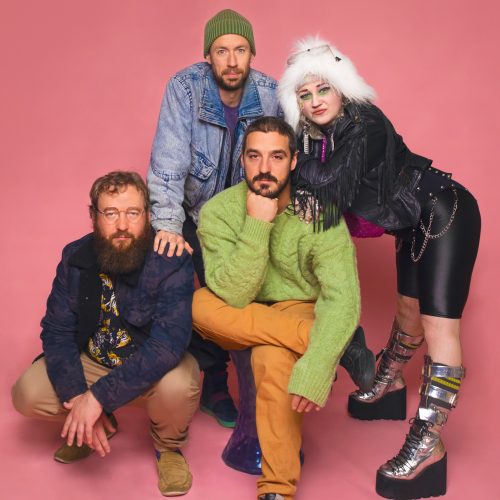What does it mean to be recognized?
Say you’ve moved to a new neighborhood. You’ve noticed a few neighbors mowing their lawns, walking their dogs, rushing to work. You’ve found your go-to spots: grocery store, bar, café, park. You start to recognize the people who populate your little corner of the universe, and they start to recognize you.
In “Make Friends,” Hiatus Kaiyote suggests a much deeper kind of recognition, as if we can be known on a deep level, as we truly are.
When singer Nai Palm, in her full, supple voice, delivers the song’s chorus and mantra, she tells us that friendship is where we find this deep recognition.
You don’t make friends
You recognize them
Its signs are both cosmic and simple: “on my wavelength” and “down to earth,” a “wild thing” but “not hard work.” The singer would seem to befriend independent types, those with “their own thing”—they want to spend time with you but don’t need to. They come and go as they please and don’t ask too much. A listener could almost fault this conception of friendship for failing to include an acceptance of foibles, except that would miss the point: acceptance means foibles aren’t foibles. If you’re on the wavelength, you’re on the wavelength, as you are. “Maybe it is fate?” as Palm sing-queries during the bridge.
Quibbles about the component parts of friendship aside, the song’s loping bass line convinces without qualification. It is the wavelength. Through the verses, in steady 6/4 time, it lopes upward and steps back down according to some arcane theory of resonance (I suppose you could call it a “scale”).
The vocal phrases in these verses stab the available space at a higher frequency, so that by the pre-chorus, the melody feels wrapped up with the bass line in a double helix of predestined attraction and understanding. When the chorus kicks in, time itself changes, or at least the time signature, and the phrasing in the words, syllable by syllable, is matched to the music:
What is it for?
Who you like, who you ignore?
The mystical, outer-spacey sophistication continues with a searching musical vamp after the second chorus—sort of like aliens kidnapped J. S. Bach, harpsichord and all, and are zipping around with him in their spacecraft in gleeful defiance of spacetime—that leads into a complicating bridge. The singer suggests “I could be your ride or die” and even offers her “yum yum”—which I guess could be a reference to a Hibachi sauce or a deep-fried croissant, though that’s not quite how I took it—while conceding she might also be a “pain in your ass.”
Suddenly friendship is on the verge of transforming into its more difficult cousin, romantic love. The soulfully ascending “You could recognize me” that caps off the bridge has an urgency not typically associated with the neato person who’s just down to hang.
Maybe it’s inevitable that a pop song—no matter how much of a jazzy-space-opera it is—will turn into a love song. Or maybe the point is that romantic love cannot be sustained without the deep, cosmic recognition of true friendship.
Or maybe the band wants to shatter received notions of what fidelity is supposed to look like in a successful romantic pairing.
It’s not terribly clear, nor does it need to be. The desire to be recognized is about being rescued from obscurity and loneliness, and both friendship and love are the best ways to get there. (Other types of recognition, like pop stardom, seem always to fall short by comparison.)
And so the song ends with a soulful, insistent repetition.
I want you to recognize me
I want you, too
The song also rethinks a hoary old idiom: “make friends.” We do not make our friends. They are in the process of making themselves. We accept them, we make room for them, we long for them to recognize us as we recognize them. It sounds almost religious. But we can go puerile, if only to avoid sanctimony: “takes one to know one.”







